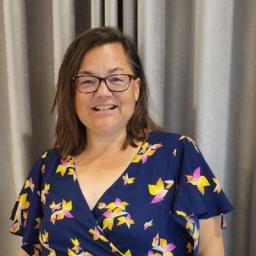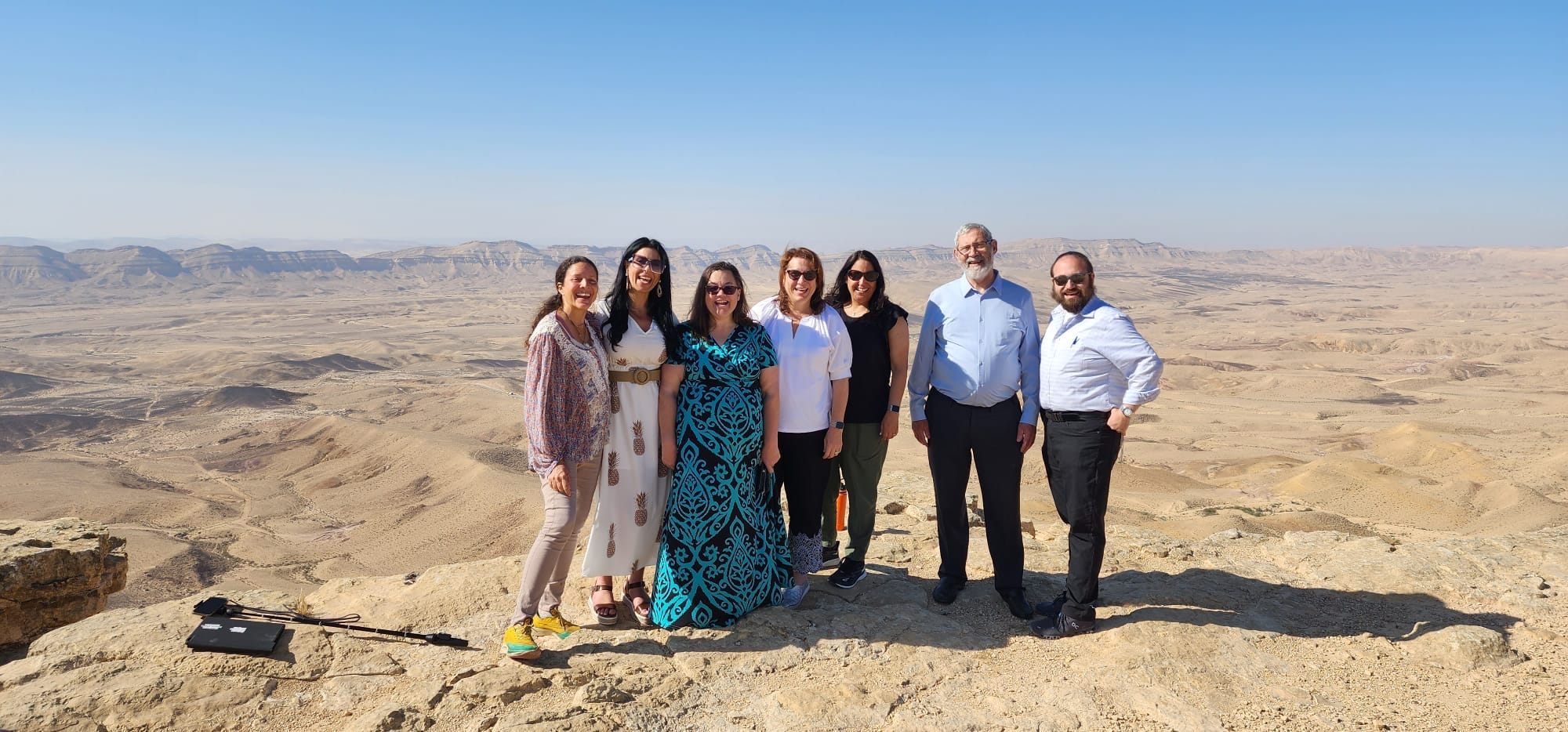Close your eyes and think of a problem you have at your school or organization. Now imagine a team of people coming together to discuss the problem, dissecting it from all angles, then working together to create a solution that benefits all of the stakeholders. That isn’t just a dream scenario, it is a reality thanks to a partnership between Miami’s Center for Advancement of Jewish Education (CAJE) and MindCET, a world leader in the edtech ecosystem based in Yerucham, Israel.
MindCET uses its experience in research and design to help edtech startups find their footing and grow their business ideas. They help connect the entrepreneurs with educators, researchers, programmers, students, and industry professionals to guide, build, and launch their products. CAJE professionals Julie Lambert, senior educational consultant, and Valerie Mitrani, director of day school professional development, learned about MindCET and developed the idea of creating opportunities for teacher entrepreneurship.
From Miami to Yerucham and Back
The idea became a reality through the Miami-Yerucham Partnership, a program of Jewish Agency and the Greater Miami Jewish Federation (GMJF). According to GMJF,
The purpose of the Miami-Yerucham Partnership is to build meaningful relationships in order to strengthen both communities and to foster and develop a love of Judaism, Israel and the Jewish people. The Partnership encourages people-to-people relationships between residents of Miami and Yerucham. It also promotes mutually supportive initiatives, connecting resources and expertise to achieve sustained spiritual, social, cultural and economic growth for both communities.
In January 2023, the inaugural MindCET Miami partnership kicked off with bi-monthly Zoom meetings where MindCET’s experts in program design, management, and education met with educators from across Miami-Dade Jewish day schools to explore the design cycle, a process that takes ideas from problem to solution. Participants looked at the big picture, broke down issues into smaller bites, and began to form solutions that could provide short-term and long-term benefits. In July, the Miami MindCET team traveled to Yerucham where they met with MindCET’s team of programmers, designers, and managers to build their initial solutions.
The commitment of five hours of monthly meetings and a week in Israel is a significant investment of both time and resources. Why would schools and teachers rearrange class schedules, dedicate time to additional work, and allocate funds to subsidize an idea that may or may not have success? For me, the opportunity to work on the ground floor of concept through design and product building helped me experience what my students face and feel during the Genius Hour unit I lead with my fifth grade students.
Learning to articulate ideas clearly, struggle to compromise, and figure out how to fix the problems that arise provided a first-hand understanding which will help me better empathize with students struggling with the same concepts. Our school, Scheck Hillel Community School, was happy to partner with CAJE and MindCET in this undertaking, sending both me and Rabbi Elias Hochner, Judaic studies teacher, to the program. Scheck Hillel believes its teachers are their best resource, and helping empower teachers to reflect, create, and problem-solve benefits not only Scheck Hillel but can have a far-reaching impact on other schools and organizations in the Diaspora.
Project #1: Curricular Integration
EdJEWcator is one of the solutions developed by a team of two educators from The Innovative School at Temple Beth Shalom, Barbara Schpilberg and Miriam Cruz Jackson, and myself. The problem this team brought to the table was one that Diaspora schools with dual curricula in general studies and Hebrew/Judaics often face. These curricula are separate entities and often do not integrate across the classes. General studies teachers would like to incorporate Jewish values, holidays, and ideas into their curriculum, and while the desire is there, the challenge of dual curriculum, dual calendars, and multiple subjects makes it difficult to fully integrate all areas of study.
To help solve this issue, the EdJEWcator team aims to develop a website/app where teachers will get email reminders two weeks before a Jewish holiday with ideas to integrate their subject area and the holiday. Teachers will be able to search for ideas to incorporate values, beliefs, and other Judaic content within the subject areas. During our visit to MindCET, the EdJEWcator team met with programmers and designers who helped develop their beta-testing product, which focuses on the email reminders about upcoming holidays and integration ideas for subject areas.
Additionally, the three of us created a website and Google Drive folder for each holiday and each subject area within general studies. We used ChatGPT and their own lessons to populate the folders that are available to teachers who signed up for their beta-testing. More information on the holidays, values, and additional lesson ideas will be added during the beta period and as the work on the programs continues this school year.
Project #2: Judaic Studies Advances
Rabbi Ari Karp of Hebrew Academy of Miami Beach and Rabbi Elias Hochner both focused on student engagement in the Judaics classroom, but took different approaches to their solution and design. Rabbi Hochner worked on developing an app that would provide an immersive environment for students to learn collaboratively (chavruta) and develop Talmud skills. Rabbi Karp created a program called Gemara Linked to help teachers properly assess their students’ understanding so they can personalize lessons for each student.
Rabbi Hochner left with a product that he can actually use and begin to evaluate its usefulness. He hopes to go further and receive the necessary funding for an immersive Virtual Reality app that can have a significant beneficial impact on students.
Project #3: Forging Deeper Connections in Israel
Our Israel week was not just for working. The participants also were able to visit the Negev desert, take a scorpion night tour, have breakfast with the Miami-Yerucham partnership group, and have dinner with one of the culinary queens of Yerucham. These cultural experiences provided the team with connections to the community and a chance to gather information for teaching their students back at home.
Touring the city with stops at various schools as well as the Yerucham Science Center strengthened connections that had begun with other Miami-Yerucham partnerships in robotics. Rabbi Hochner was amazed and inspired to see how a city with seemingly limited resources is so invested in the education of its children. The Miami team also had the opportunity to visit an arts center where women meet with artisans to learn crafting skills that help to build opportunities for business and industry for the Bedouin and Israeli women in the community.
This valuable experience will continue into the current school year, where the groups will take the results of their beta testing and look for ways to improve their app/website. Teachers from the initial cohort will model this entrepreneurial mindset with other teachers from their schools who will also look for problems to solve in their classrooms and continue the innovation mindset as they look for and build solutions.
If you are interested in testing and providing feedback, you can email me ([email protected]) and I will send you the information to sign up for each beta testing program.




